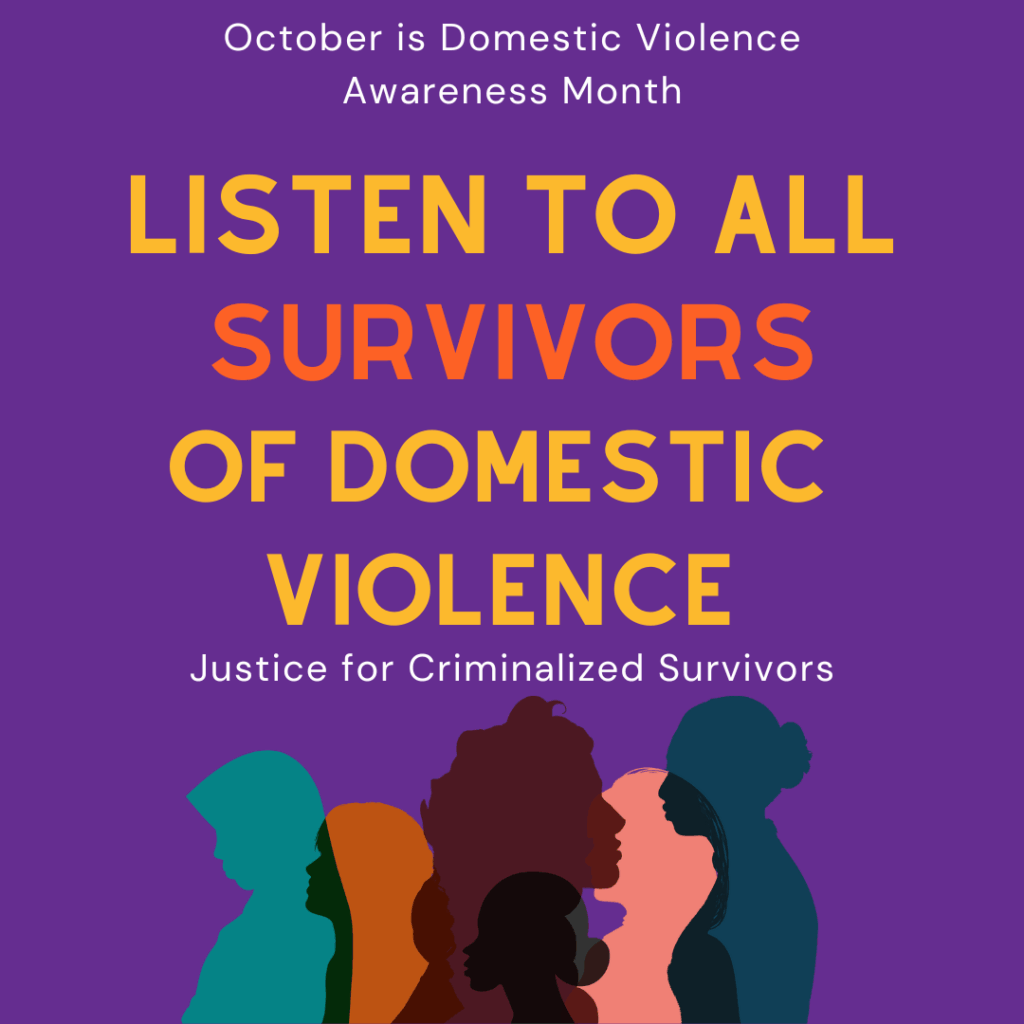When Shameka Layton was fourteen, she left a dysfunctional household and never returned. She met a fellow runaway named Walter who had left a group home in search of his parents and siblings. Walter soon began drinking and selling drugs, which resulted in him becoming abusive towards Shameka.

When Shameka became pregnant at seventeen, with nowhere else to go and no one to turn to, she stayed despite Walter’s ongoing abuse. By the time she was 18, Shameka found herself participating in a robbery that resulted in the loss of a life. As a result, her life had ended before it had a chance to begin.
This October, in keeping with Domestic Violence Awareness Month, it is time to demand justice for all survivors–including those whose experiences of trauma and abuse have led to their criminalization due to their entrapment within cycles of violence and inequality. A Survivors Justice Act in Michigan is long overdue, as this would allow courts to reduce prison sentences for survivors of domestic violence, sexual assault, and human trafficking when that abuse meaningfully contributed to a later offense.
Nataie Holbrook-Combs, Director of the American Friends Service Committee’s Criminal Justice Program in Michigan, explains that the needs of women in prison are often overlooked by correctional authorities and advocates. She states, “prisons threaten women’s rights everywhere. Michigan stands as a glaring example of this systemic failure, with one of the highest numbers of women serving life sentences in the nation.”
Some statistics highlighting the problem include:
- Up to 90% of women sentenced to prisons in the United States are survivors of sexual violence, either in childhood, adulthood, or both.
- Over 400 women serving long or life sentences have little access to rehabilitative programs, education, or therapy because people must be near their release dates to qualify for many of these programs.
- One in three women in the U.S. have experienced sexual violence between the ages of 5 and 25.
- 42% of women in U.S. prisons identify as LGBTQ+, revealing another layer of social marginalization.
Judges currently do not have the ability to resentence outside of extremely narrow cases such as appeals or in response to Supreme Court decisions. A Survivor’s Justice Act would allow for judges to account for the impacts of trauma and abuse when reviewing cases, as the longterm consequences of domestic violence, sexual violence, sex trafficking, and other forms of GBV could be taken into consideration under this new legislation.
Prosecutors and punishment-first politicians have ignored stories of survivors like Shameka for too long, but you can help change that. MI-CEMI is launching a new storytelling initiative to amplify the experiences of “criminalized survivors” like Shameka and “reconciled survivors” who support second chances for individuals convicted of a crime. If you would like to share your story, or if you know someone who does, please share it with us by reaching out to Amber Hardiman at amhardim@umich.edu or mail@mi-cemi.org.
